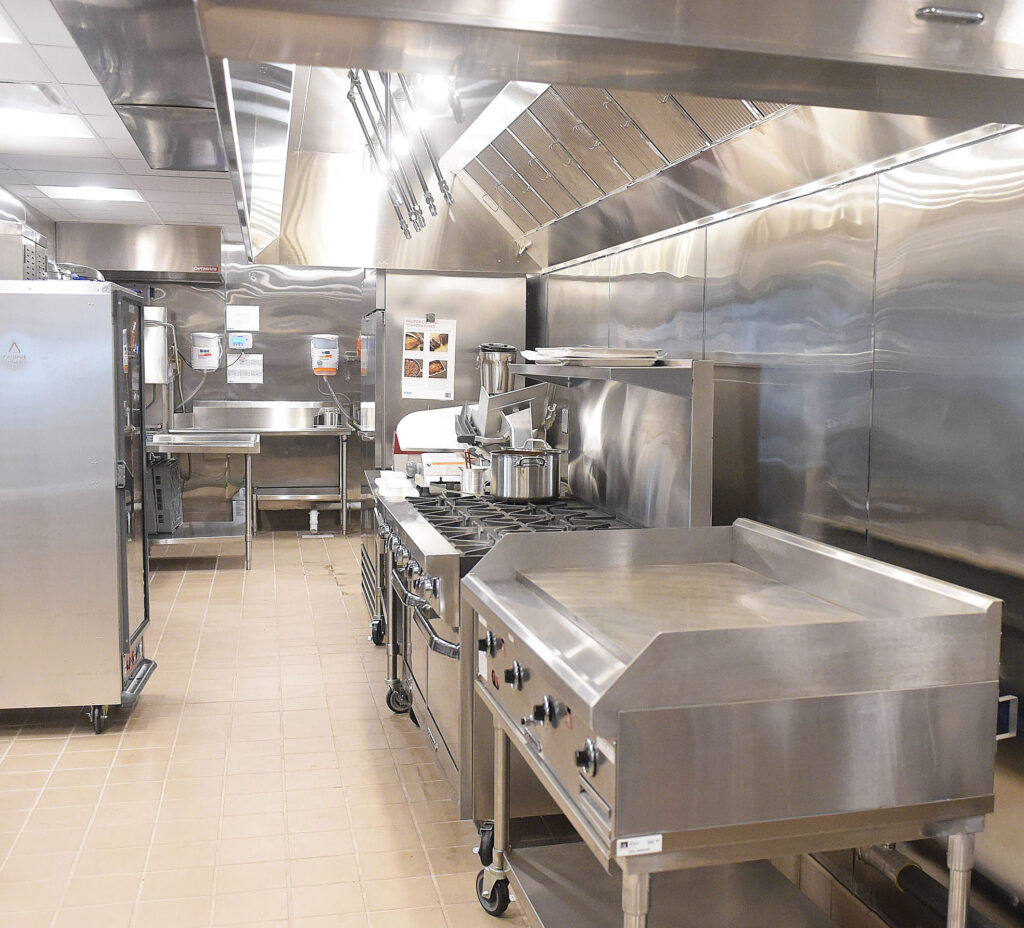It’s the community’s kitchen — from farmers to for-profit businesses; from individuals to agencies — and now it has a name.
The Community Food Innovation Center, located within the Monongalia County Extension Services and 4-H Center, 270 Mylan Park Lane, was opened up to the press on Thursday.
The facility, which was first championed by former County Commissioner Ed Hawkins, is essentially a decked out commercial kitchen space for hire — whether for an established restaurant needing additional prep space, a individual looking to test the marketability of a secret recipe, a nonprofit trying to fill a need, or an event being held on-site or elsewhere.
“It really has an array of opportunities and I’m really excited to see it get off the ground and get used,” Rachel Mitchell said. “It’s been a labor of love to get that kitchen open, but to see it running in real time and seeing the product coming out of there is pretty cool.”
Mitchell, the venue manager for the Mon County Center. handles scheduling for the kitchen and explained that rental rates are determined on a case-by-case basis looking at the user needs as well as any labeling or permitting that may be needed for products intended to be sold online or in stores.
“It’s here for the community,” Mitchell said. “We’re not here to price anybody out.”
The venue’s first client is Healthy Kids Inc., which uses the space to produce fresh meals for local daycare facilities.
Mitchell said Healthy Kids will be in the kitchen from 6 a.m.-2 p.m. for at least the next six months, but the kitchen can be scheduled for use around the clock.
Monongalia County Commission President Sean Sikora said the commission wasn’t initially unanimous in its vision of what the kitchen should be, or cost.
Then it began pulling together data to request CARES Act funding for the project. While that effort was ultimately unsuccessful, it got the kitchen funded nonetheless.
“And what that process did was force us to put pen to paper to really verbalize what we thought this kitchen could do. That was the most worthwhile exercise, bringing all the partners together to discuss all the ways this kitchen could serve the community,” he said. “That’s when the commission said ‘OK, we see it. We see the light. Let’s go ahead and purchase it and do it ourselves.’ ”
The cost to build out the space and fill it with equipment was about $400,000.
Sikora said the potential for the facility to be used as a teaching environment and allowing for the preparation and preservation of locally grown food is especially important in light of world events.
Making us more self-sufficient here at home and less reliant on food coming in from outside the community really falls in line with what we’ve learned during this pandemic,” he said. “We all need to strive to be more self-sufficient, and that means as a community as well.”
TWEET @DominionPostWV






